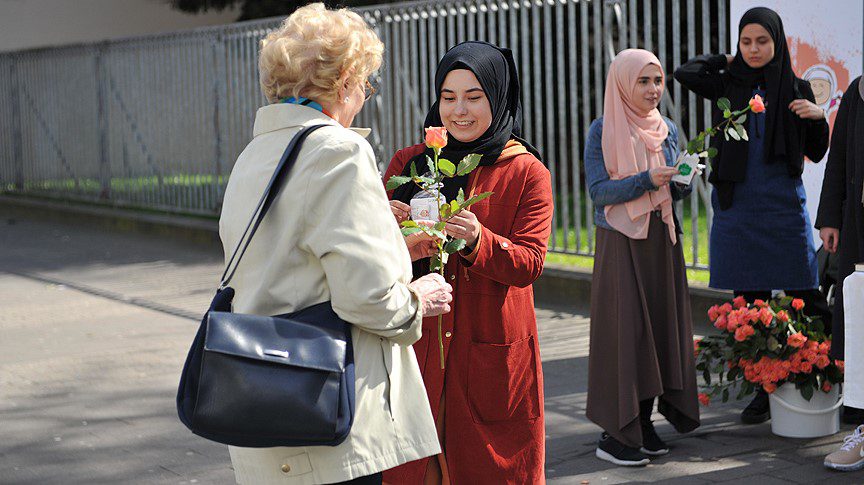
Shias’ Social Activities in USA

The Shia Community and Civic Engagement in America
Shias social activities in USA is affected by their double consciousness as they navigate between a homeland and an American mentality. One important way of doing this is to engage in civic responsibility. Civic engagement is an important way of escaping marginalization, of feeling at home in America and, at the same time, stressing the “Americanness” of an American Islam.
What is Civil Society?
Civil society consists of two parts, structural and cultural. Structurally, the term refers to the ensemble of institutions that stand between the private sphere on the one hand and the macro-institutions of the state and the economy on the other. Culturally, the term refers to those institutions that mitigate conflict and foster peace. The term “civil society” can thus be seen as signifying types of social processes that relate to an intermediary participatory realm between the private and public spheres. This realm is determined by structures, processes, and institutions that stem from the voluntary, private actions of individual citizens.
Shias in different parts of the country have increasingly identified themselves with American culture and values, and have tried to distance themselves from the back-home mentality. They have tapped into Islam to activate ethical and moral universal imperatives and have highlighted Muslim role models to show how Islam can contribute to American civil society.
Examples of the Shia Civil Engagement
This process has expressed itself in various forms. Shias social activities in USA include programs like food drives and helping homeless Americans. Centers have facilitated “open-mosques” hours and have tried to become more “people friendly” by encouraging their non-Muslim neighbors to visit mosques.
Bayt al-Zahra, helps with the transportation of and translation for the less fortunate in the area. UMF assists Muslims and non-Muslims against hunger and reaches out to the homeless, hungry, and working poor in the area. UMF has participated in many events helping people in need, ranged from serving at soup kitchens to providing food pantries for the homeless. The UMF has also donated food and clothes to schools and encouraged its members to run in marathons and collect funds for the American Cancer Society. UMF also aims to promote greater Islamic awareness and cultural understanding while reaching out to those in need.
Projects such as these show that Shias are increasingly committed to instilling a sense of civic awareness in their communities. They have promoted civic rather than just communal programs since the latter can foster exclusion and marginalization, elements that are not conducive to promoting a better image of Islam. Shia role models like ‘Ali and Husayn are invoked to contribute to American civil society. Shia women are drawing upon female role models like Fatima and Zaynab to accentuate their own contribution in the American public sphere. This civil engagement with the non-Muslim other is predicated on principles like shared humanity, universal values of justice, and a concern for the less fortunate.
As American Shia become more closely identified with American civil society, their self-imposed marginalization is ending. Interaction with political, religious, and civic leaders have prompted Shias to accentuate humanitarian values that transcend the boundaries of religion, culture, and race. Gradually, the Shias will have to go beyond civic boundaries and enter into matters important in American political discourse, issues such as housing, unemployment, racism, and the environment.
Taken from Shi‘ism in America by Liyakat Nathani Takim